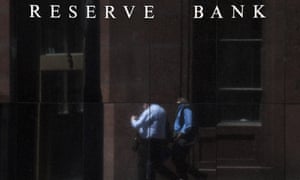
After the RBA’s statement, the dollar fell against the US currency and the stockmarket rose as investors were relieved the central bank was not more aggressive in its comments about the outlook for inflation and the potential for an early rise in interest rates.
Maxime Darmet, the director, economics at Fitch Ratings, said “it’s really like the first step we think towards the normalisation of [Australia’s] monetary policy settings, which had been very loose since the pandemic”.
Darmet said the indications the bank would wait until as late as the end of 2023 to be sure inflation would remain in the 2-3% target range was “not a big change” from previous comments about waiting until 2024.
However, he said should the recovery remain strong we could expect more adjustments sooner than the RBA forecast.
“It’s very possible that in the next meeting they would think it would be 2022,” he said.
The RBA had been relatively “dovish” in its signalling that it was not worried about inflation. However, it also couldn’t be seen to be too slow either in responding as central banks in the US, Canada and soon the UK prepare to wind back support for the economy.
“You’re seeing so much pressure on prices at a global level with energy prices spiking, with supply bottlenecks persisting and so on,” Darmet said. “It’s a very dovish central bank but starting gradually to come around to the new reality that inflation is going to be probably higher than they expected.”
While mortgage holders can take some relief from today’s RBA comments that an interest rate rise isn’t around the corner, Australia and other nations have allowed housing prices to rise too far too fast for the overall health of the economy, not to mention housing affordability for those not in the market.
“Low interest rates are the main channel through which people are taking on more debt,” Darmet said.”[It] can become a concern in terms of not only affordability for low-income households, but also it creates a lot of potential financial instability and risk.
“And this is something many central banks are not taking too seriously,” the Fitch analyst said.



